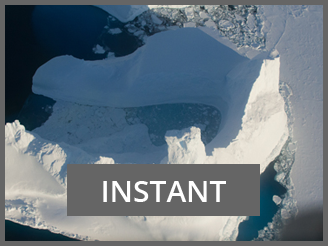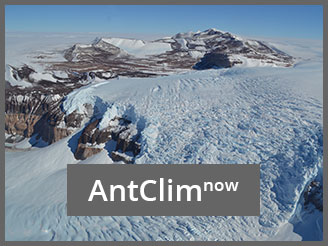We are excited to announce the approval of three exciting multidisciplinary Scientific Research Programmes by the SCAR Directors (the President and Vice-Presidents) following an extensive and rigorous evaluation and selection process lasting over 2 years.
![]() Integrated Science to Inform Antarctic and Southern Ocean Conservation (Ant-ICON) – this programme was developed with the primary aims of facilitating and coordinating high quality science to support improved management of and conservation outcomes for Antarctic and Southern Ocean environments. The planning team, which consisted of nearly 50 people from all over the world across a range of disciplines, worked over the last three years to develop key research priorities and questions that will guide work under this program. In addition to high quality science, Ant-ICON has a strong commitment to promoting diversity, equity and opportunity in Antarctic science.
Integrated Science to Inform Antarctic and Southern Ocean Conservation (Ant-ICON) – this programme was developed with the primary aims of facilitating and coordinating high quality science to support improved management of and conservation outcomes for Antarctic and Southern Ocean environments. The planning team, which consisted of nearly 50 people from all over the world across a range of disciplines, worked over the last three years to develop key research priorities and questions that will guide work under this program. In addition to high quality science, Ant-ICON has a strong commitment to promoting diversity, equity and opportunity in Antarctic science.
Dr. Mercedes Santos, co-chief officer of Ant-ICON says: “In these times when many projects around the world have been delayed, I am very happy and hopeful to see that SCAR has reacted promptly to approve these new SRPs that will contribute to better knowledge of Antarctica and therefore will contribute to its conservation. It is important to keep in mind that adequate conservation measures in Antarctica can have global reaching impacts”.
Co-chief officer Dr. Aleks Terauds adds that “Antarctica and Southern Ocean environments and ecosystems are under increasing threats from a range of sources. Through Ant-ICON we hope to identify vulnerable areas and species, improve our understanding of threatening processes, and provide achievable strategies for minimising impacts.”
To find out more, go to: https://www.scar.org/science/ant-icon/home/ or watch the Ant-ICON presentation at SCAR 2020 Online.
 Instabilities and Thresholds in Antarctica (INSTANT) – this program aims to quantify the Antarctic ice sheet’s contribution to past and future global sea-level change. It encompasses geoscience, physical sciences and biological sciences and will investigate the way in which interactions between the ocean, atmosphere and cryosphere have influenced ice-sheets in the past, and what we might expect in the future. The key outcomes will be reconstructions of past and projections of future ice mass changes, which will be shared with various stakeholder groups.
Instabilities and Thresholds in Antarctica (INSTANT) – this program aims to quantify the Antarctic ice sheet’s contribution to past and future global sea-level change. It encompasses geoscience, physical sciences and biological sciences and will investigate the way in which interactions between the ocean, atmosphere and cryosphere have influenced ice-sheets in the past, and what we might expect in the future. The key outcomes will be reconstructions of past and projections of future ice mass changes, which will be shared with various stakeholder groups.
“The INSTANT Programme provides an exciting opportunity to co-ordinate SCAR science in multi-disciplinary way and to bridge the various scientific polar communities to address one of the biggest questions facing climate science and humanity today – Antarctica’s uncertain contribution to future sea-level rise. We look forward to working closely with the other new SRP, and our partners in the World Climate Research Programme”, comment Prof. Timothy Naish and Dr. Florence Colleoni, Chief Officers of INSTANT.
To find out more, go to: https://www.scar.org/science/instant/home/ or watch the INSTANT presentation at SCAR 2020 Online.
 Near-term Variability and Prediction of the Antarctic Climate System (AntClimnow) – this program will investigate the prediction of near-term conditions in the Antarctic climate system on timescales of years to multiple decades. It will take an integrated approach, looking beyond climate projections of the physical system to consider the Antarctic environment as a whole.
Near-term Variability and Prediction of the Antarctic Climate System (AntClimnow) – this program will investigate the prediction of near-term conditions in the Antarctic climate system on timescales of years to multiple decades. It will take an integrated approach, looking beyond climate projections of the physical system to consider the Antarctic environment as a whole.
“The question of how Antarctic climate and conditions in the Southern Ocean may change in the near term is of high importance for physical and biological systems, environmental management, and infrastructure planning”, says Dr. Thomas Bracegirdle, co-Chief Officer of AntClimnow. Co-chief officer Dr. Ilana Wainer stresses that “understanding the role of Antarctica on the changing climate in the near term will provide a framework for addressing longer term impacts associated with the surrounding ocean”.
To find out more, go to: https://www.scar.org/science/antclimnow/home/ or watch the AntClimNow presentation at SCAR 2020 Online.
About SCAR’s Scientific Research Programmes
SRPs are SCAR’s highest level of investment in science and are large, overarching programmes intended to address vital and wide-ranging scientific questions. SRPs require sustained efforts by international teams of scientists and researchers for up to eight years. They are developed and proposed by Programme Planning Groups (PPGs) fostered by one or more of SCAR’s Scientific Groups (SGs) and undergo rigorous review led by the SCAR Vice President for Science.
Dr. Catherine Ritz, SCAR Vice President for Science, highlights the importance of the three new SRPs:
“These Scientific Research Programmes are well-designed, ambitious, and address scientific questions of primary importance that require coordinated effort among various Antarctic and Southern Ocean disciplines. SCAR provides a unique place where all these scientific communities are represented, which gives these projects strong assets to achieve their goals. These new SRPs will substantially contribute to the understanding of Southern Polar regions, a knowledge that is crucial in the context of global change.”
The three new SRPs are multidisciplinary programmes that have worked closely together since their inception as PPGs and have been designed to be complementary and collaborative. Planning is already underway and they will begin their work as SRPs in 2021.
“Through its Scientific Research Programmes SCAR has facilitated leading global science in, from and about Antarctica and the Southern Ocean. During a time of unprecedented interest in and concern about the polar regions, we are pleased to continue our contributions through these SRPs which will provide further evidence to underpin international policy deliberations,”
stresses SCAR President Prof. Steven Chown.
More detail on SCAR’s Scientific Research Programmes, news and resources can be found on the SCAR SRP page. Here you will also find information about the previous generation of Scientific Research Programmes (2012-2020) that will draw to a close in 2020.
